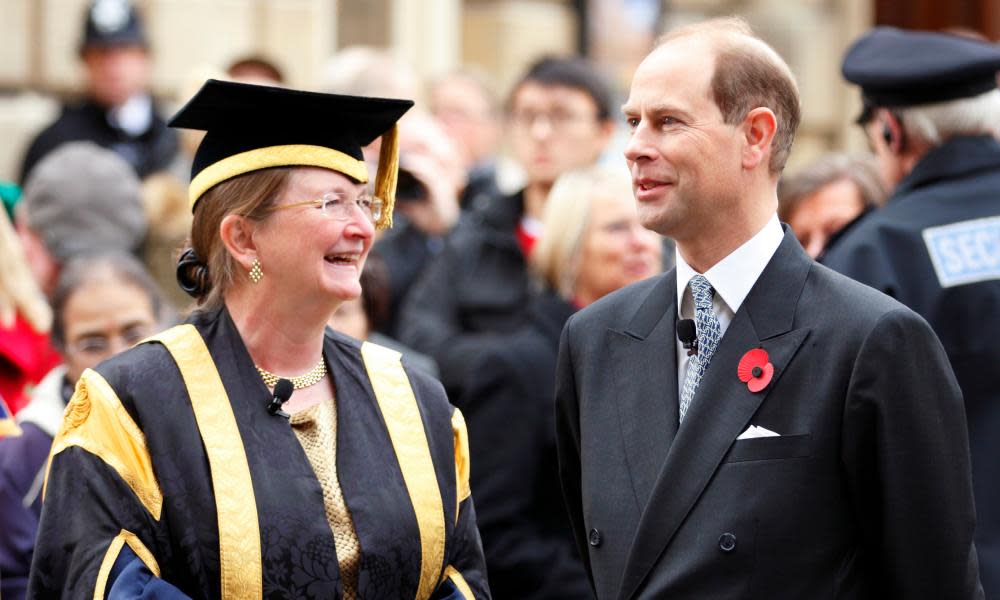Calls for Bath University vice-chancellor to resign over further pay rise

The former education minister Andrew Adonis has called for the vice-chancellor of Bath University to step down after it was revealed that she received a further pay increase for the current academic year.
Glynis Breakwell was awarded a further increase of £17,500 in 2016-17 by Bath’s remuneration committee, while she was still a member of the committee, raising her total wages and benefits from £451,000 to more than £468,000.
Breakwell is the highest-paid vice chancellor in the UK, and her wages and conditions have been the subject of controversy following a string of revelations, including the purchase of an expensive residence in the centre of Bath, and sparked resignations from the university’s court.
A freedom of information request by the Bath Chronicle found that Breakwell’s pay this year was increased by the 1.1% national pay award for university staff and an extra 2.8% by the remuneration committee, which further widened the gap between the vice chancellor’s income and that of Bath’s lowest-paid staff.
Last year, the average salary of British vice chancellors was around £250,000 [paywall].
Lord Adonis, a Labour peer who has waged a vocal campaign over high levels of university leadership pay, said the revelation of Breakwell’s further increase was a “disgrace”.
“She has got to resign now. Her behaviour is outrageous and Bath University needs new, untainted leadership,” Adonis said.
Almost unbelievable - after the huge row about her salary, the VC of Bath has just got a FURTHER 3.9% PAY RISE to £468k. Shameless & outrageous! https://t.co/qAotQ20Ny5
— Andrew Adonis (@Andrew_Adonis) November 19, 2017
He has laid a complaint with the Higher Education Funding Council of England (Hefce) over the governance of Bath and called for an investigation into allegations that the university overrode internal objections to Breakwell’s pay level.
Bath announced this month that Breakwell had stepped down from the remuneration committee. But the latest decision on her 2016-17 pay hike was taken at a meeting in July last year.
The Bath Chronicle reported that the committee’s minutes show Breakwell withdrew from the meeting while her pay was under discussion.
A Bath university spokesperson told the newspaper: “It is right that the university pays the salaries required to recruit and retain individuals with the skills and experience to ensure the continued success of the university and its excellence in teaching and research.”
In recent months, four Labour MPs have resigned from ex officio places on the university’s court, citing concerns over Breakwell’s pay and the university’s handling of the issue.
Breakwell has made few public comments on the matter, other than a statement in August in response to the Hefce enquiry. “The university is committed to the highest standards of governance and treats very seriously any complaint made,” Breakwell said.
Earlier this month, it was reported that Bath had seen a sharp decline in student applications, which may have been attributed to the controversy.
Breakwell’s supporters say she has overseen a transformation at the university since taking over as vice-chancellor in 2001. They point to Bath’s outstanding results in the government’s recent research and teaching rankings, including a gold award in the first teaching excellence framework.
Bath’s architecture department was ranked the highest in the UK in the research excellence framework in 2014; its health, sports and engineering departments were also lauded. The Guardian’s university guide ranks Bath as fifth among UK universities. The QS world rankings placed it at number 160 of nearly 1,000 universities internationally.

 Yahoo News
Yahoo News 
